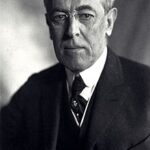President Woodrow Wilson’s rigid stance on the League of Nations marked one of America’s most consequential diplomatic failures. After World War I ended in 1918, Wilson championed his Fourteen Points and the League concept. He believed international cooperation could prevent future wars. ⚠️ However, his unwillingness to accept Senate modifications doomed the entire project.
The Wilson League of Nations Standoff
The Senate offered multiple compromise proposals in 1919 and 1920. Republican leaders like Henry Cabot Lodge proposed reservations protecting American sovereignty. These modifications would have preserved Congress’s war-declaring powers. Wilson rejected every suggestion, calling them betrayals of his vision.
Presidential Inflexibility
Wilson embarked on a grueling nationwide speaking tour to build public support. The president suffered a debilitating stroke in October 1919. 📊 Despite his declining health, Wilson maintained his all-or-nothing position. He instructed Democratic senators to vote against any modified treaty.
The Final Vote
The Senate defeated the treaty twice in 1919 and 1920. Wilson’s own party members followed his orders to reject compromise versions. The United States never joined the League of Nations. 🌍 America’s absence significantly weakened the organization’s effectiveness and global influence.
Impact:
Wilson’s refusal to compromise on the League of Nations created devastating long-term consequences for American foreign policy and international relations. The decision isolated America from global cooperation efforts during the crucial interwar period.
Immediate Political Consequences
🔥 The League defeat severely damaged Wilson’s presidency and Democratic Party prospects. Republicans gained control of both houses of Congress in 1920. Warren G. Harding won the presidency promising a “return to normalcy.” Wilson’s internationalist vision was thoroughly repudiated by American voters.
International Isolation Effects
America’s absence from the League of Nations weakened global peacekeeping efforts. 🌍 The organization lacked the world’s emerging economic superpower as a member. European nations struggled to maintain collective security without American participation. The League failed to prevent aggression by Japan, Italy, and Germany in the 1930s.
Historical Legacy
📉 Wilson’s inflexibility became a cautionary tale about presidential stubbornness in foreign policy. Future leaders learned the importance of working with Congress on international agreements. The Wilson League of Nations failure influenced how Franklin Roosevelt approached the United Nations formation. FDR carefully cultivated bipartisan support to avoid repeating Wilson’s mistakes. The episode demonstrated how personal pride can undermine national interests and global stability.
